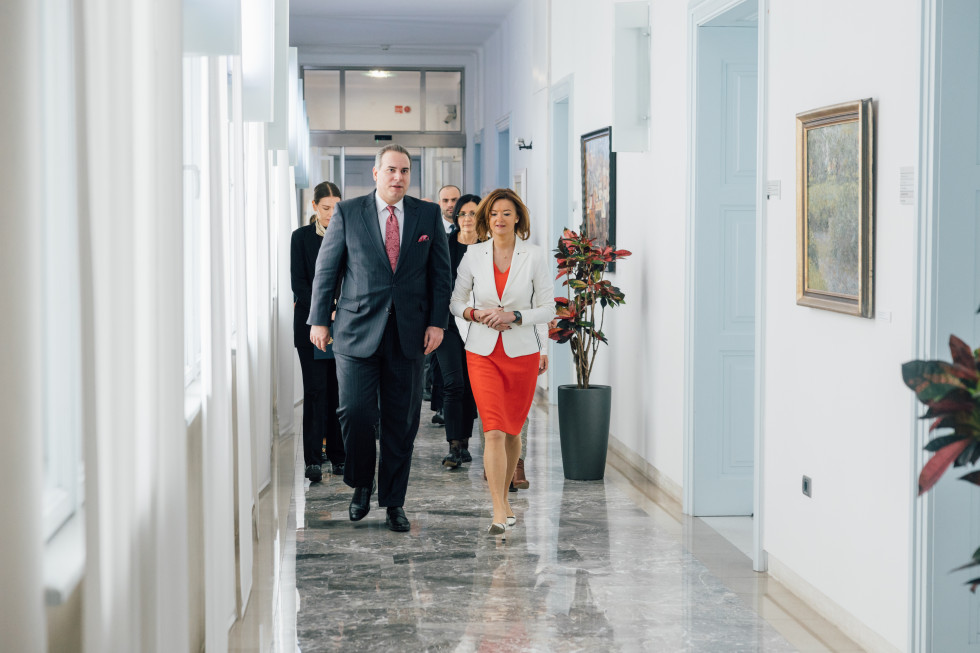Minister Fajon: Slovenia supports Montenegro’s efforts to speed up the negotiation process with the EU

Montenegrin Foreign Minister Filip Ivanović pays an official visit to Slovenia | Author Ministrstvo za zunanje in evropske zadeve
The two ministers expressed their satisfaction with the traditionally friendly, very good and diversified relations between the two countries, without any outstanding political issues. This is also reflected in the fact that Slovenia was the first country to open a diplomatic mission in Montenegro and that it has continuously supported Montenegro in its EU accession process. Minister Fajon conveyed to her colleague Slovenia's interest in strengthening economic cooperation and informed him about the challenges faced by Slovenian companies in Montenegro. She stressed that Slovenian companies are important investors in Montenegro and provide many jobs, adding that in order to increase investment by Slovenia, it is necessary to ensure a stable political and business environment in the country.
Commenting on Montenegro's progress towards the EU, Ms Fajon stressed: “I am pleased to see Montenegro's new momentum to accelerate the negotiation process, which has not gone unnoticed by EU Member States. They are ready to close 10 chapters in 2024. Slovenia sees Montenegro, which is also a regional leader in European integration, as an important factor for stability in the Western Balkans and supports it both in terms of advocating the enlargement of the Union and providing bilateral aid. It is therefore crucial at this point that Montenegro remains committed to implementing the reforms and takes all the necessary steps to make progress.” Minister Ivanović thanked Minister Fajon for Slovenia’s aid and support on Montenegro’s path towards the EU.
Minister Fajon assured her colleagues that Montenegro remains one of the top geographical priorities for Slovenia’s development cooperation and one of the main recipients of development aid. Slovenia is also working to coordinate as soon as possible a new development cooperation programme for the 2024-2026 period, the sixth in a series, which will allow for further assistance in the alignment of Montenegrin legislation with the EU acquis, infrastructure projects, public finance, empowerment of women and girls, etc.
The ministers also discussed the Western Balkans Cyber Capacity Centre (WB3C), a regional cyber capacity hub based in Podgorica, established by Slovenia, France and Montenegro. In this context, Minister Fajon welcomed the entry into force of the Memorandum of Cooperation between the foreign ministries of Slovenia and Montenegro on the donation of equipment for the Centre and expressed hope that the Centre will be ready for official opening as soon as possible. In 2024, the Regional Cyber Capacity Centre plans to conduct more than ten different training programmes in the field of cyber security, cybercrime law enforcement and international cyber cooperation for experts from the Western Balkans region, who will be able to transfer the acquired knowledge to their home countries.
The ministers devoted part of their discussion to current foreign policy issues, focusing on the situation in the Middle East and the war in Ukraine, with Minister Fajon presenting Slovenia’s activities in the framework of its membership of the UN Security Council.

